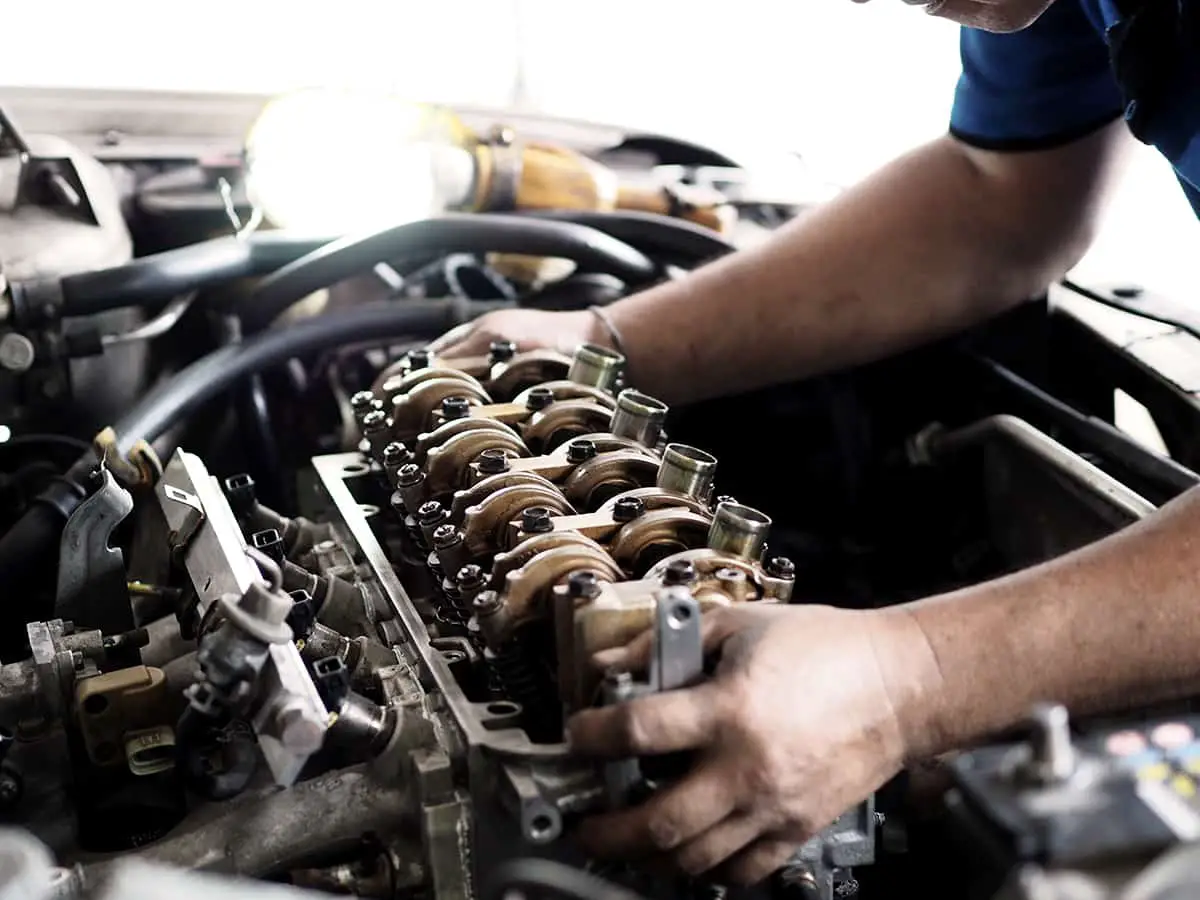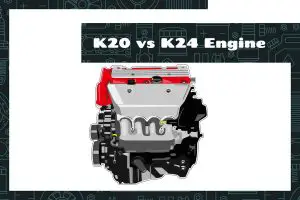The evolution of automobile technology has continued to advance over the years. Despite the focus on new vehicle components, particularly the engine, the weight of a car is often overlooked. If you’re in the market for a replacement engine or if you want to construct your own car from scrap parts, it might be a good idea to figure out how much a car engine weighs.
The weight of a car engine varies, but on average, it weighs between 300 and 700 pounds. Larger engines, such as V8s, usually weigh between 400 and 700 pounds, while smaller V6 engines typically weigh between 300 to 450 pounds. It is worth noting that diesel engines tend to be heavier and can weigh more than 700 pounds.
In this guide, we’re going to take a look at the various factors that affect a car engine’s weight and why car engine weight even matters.
What Factors Affect Car Engine Weight?
In general, there are 4 factors that will affect the overall weight of a car engine—how many engine cylinders there are, how large the engine is, what the engine is made of, and when the engine was made.
Let’s look at each of these variables individually to get a better understanding of car engine weights.
1. Number of engine cylinders
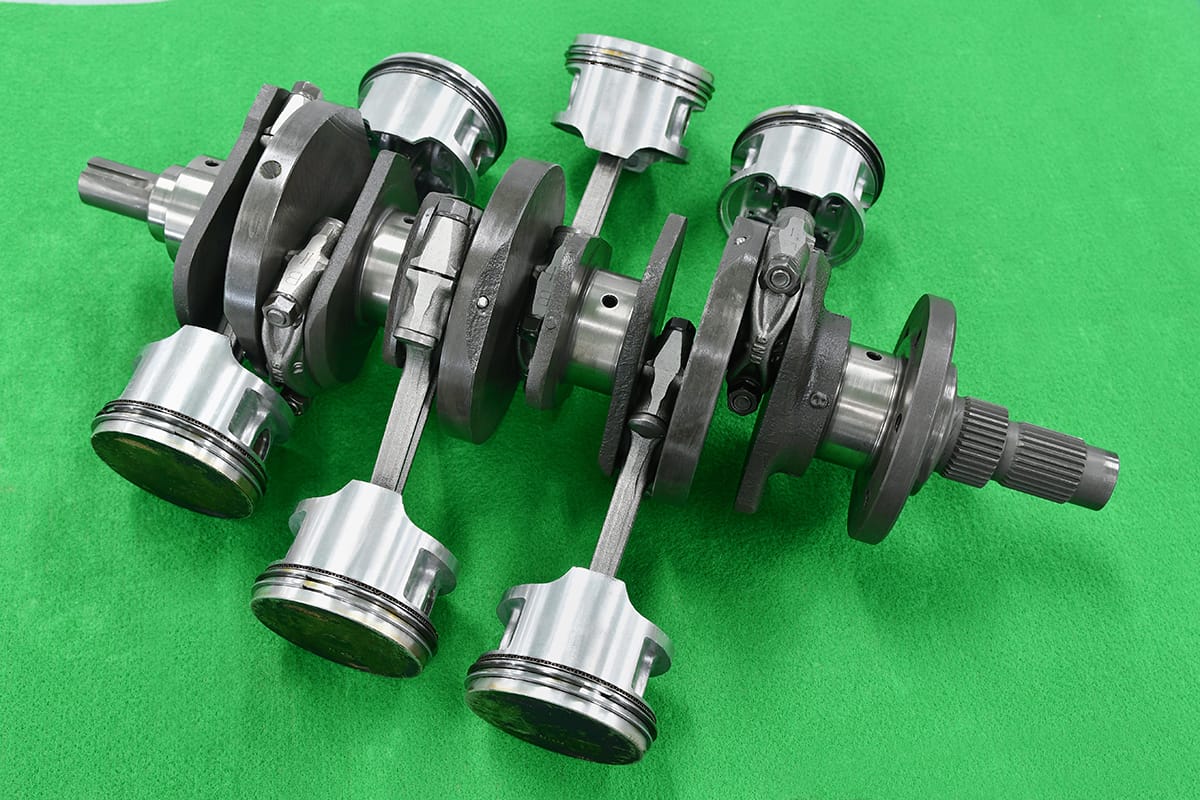
A cylinder is a component of an internal combustion engine that is cylindrical in shape and contains a moving piston. This motion converts fuel and air into mechanical energy that drives the vehicle. The number of cylinders in an automobile engine can range from 2 to 12, with each cylinder producing power independently.
The most common number of cylinders in modern automobiles is four, followed by six and eight. The number of cylinders can have an effect on the performance of the engine, with more cylinders typically resulting in higher power output and a more refined operation. However, more cylinders can lead to increased weight, complexity, and fuel consumption.
The following chart will give you a rough idea of how much a car engine weighs based on the cylinder count.
| Engine cylinder count | Estimated weight (lbs.) | Estimated weight (kg) |
| 2 | 165 to 220 | 75 to 100 |
| 3 | 145 to 240 | 66 to 109 |
| 4 | 200 to 350 | 91 to 159 |
| 5 | 300 to 350 | 136 to 159 |
| 6 | ≈ 450 | ≈ 204 |
| 8 | 400 to 700 | 181 to 318 |
| 10 | ≈ 800 | ≈ 363 |
| 12 | ≈ 800 | ≈ 363 |
2. Engine size
The weight of a car engine depends primarily on its size or displacement. A larger engine has more space for air and fuel ignition and hence weighs more. Manufacturers are seeking to produce smaller and more powerful engines through the use of hybrid technology and turbocharging.
3. Engine construction
The use of different materials for engine construction can result in a significant difference in weight. A cast iron engine is typically heavier than an engine made of aluminum. This is why some newer car models are lighter than older models, as older engines were often made from cast iron, while newer engines use lighter aluminum construction.
4. Engine model year
Newer engines tend to be more technologically advanced than older ones, and automobile design experts have managed to shrink many components in more recent internal combustion systems. This has resulted in smaller engine sizes. In recent years, factors such as the rising cost of gasoline, global warming, concerns over CO2 emissions, and government regulations have encouraged the production of smaller engines. However, some newer engines may still be heavier due to the addition of extra sensors, accessories, and modifications.
Gas vs. Diesel Engines
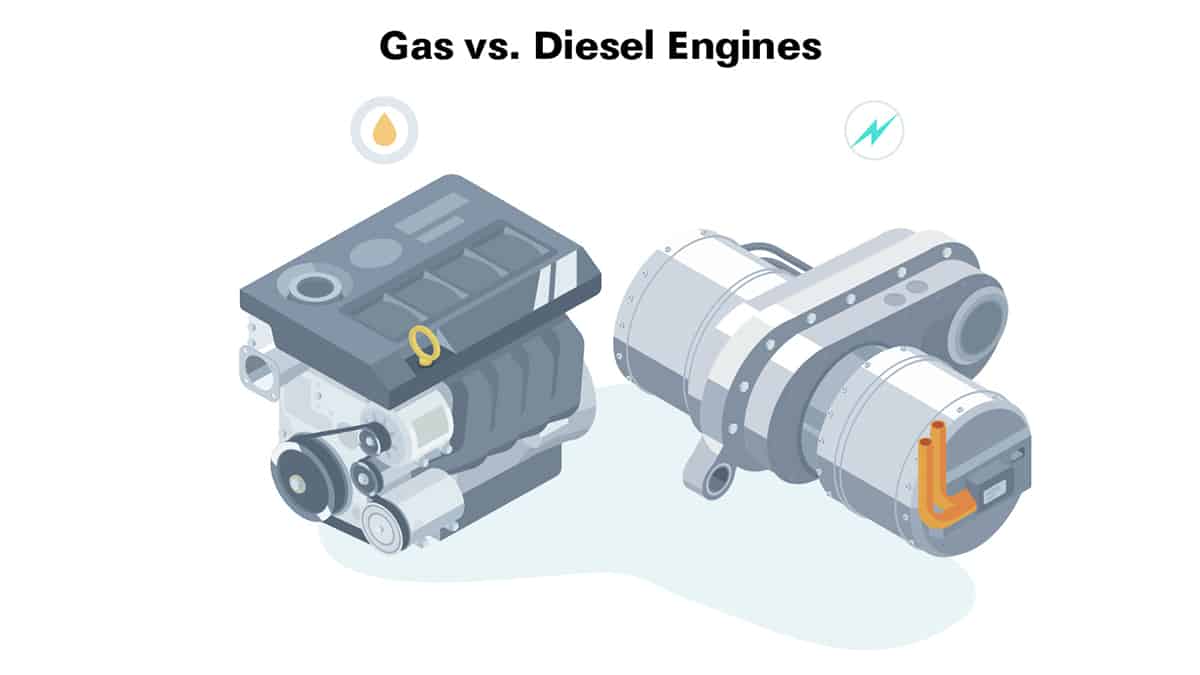
Diesel engines are usually heavier than gasoline engines due to the differences in their working principles. Diesel engines operate on the principle of compression ignition and require a strong and sturdy structure to handle the noise and vibrations generated during the combustion process. They also have a higher compression ratio than gasoline engines, requiring a thicker and heavier engine block.
Additionally, diesel fuel has larger and denser molecules than gasoline, leading to a higher weight per gallon of fuel. A gallon of gasoline weighs around 6 pounds, while a gallon of diesel weighs around 7 pounds., contributing to the overall bulkier mass of diesel engines.
Why Does Car Engine Weight Matter?
Engine weight is an important factor to consider in the automotive industry. It significantly impacts a vehicle’s overall performance, fuel efficiency, and handling. Here are some reasons why engine weight matters:
1. Performance
A heavy engine can negatively impact a vehicle’s acceleration, power, and overall performance. Lighter engines allow vehicles to accelerate faster and respond more quickly to driver inputs.
2. Fuel efficiency
A lighter engine means a lighter vehicle, leading to improved fuel efficiency. Heavier engines require more energy to move and operate, leading to decreased fuel efficiency.
3. Handling
A heavy engine can negatively impact a vehicle’s balance, causing it to handle poorly, especially in high-speed driving conditions. A lighter engine, on the other hand, leads to improved handling and a better driving experience.
4. Safety
In the event of a collision, a heavy engine can cause serious harm to passengers or other vehicles on the road. A lighter engine helps reduce the risk of injury in the case of an accident.
5. Cost
A lighter engine typically requires less raw material, which leads to lower production costs. This can result in lower vehicle prices for consumers.
Are Bigger Engines More Durable?
The longevity of an engine is not solely determined by its size. The type of vehicle and how it is used is more crucial in determining engine lifespan. A larger engine may not have to work as hard as a smaller engine, but it has heavier components and uses more power and fuel. However, using a larger engine is not always the best choice.
A heavy engine can wear out faster, so it is important to choose the appropriate engine size for the vehicle it is powering. An excessively large engine would be wasteful and consume too much power and fuel, while a too-small engine would have to work harder and wear out quicker.
For example, putting a large V8 engine into a small car like the Honda Accord is not necessary as the V6 engine it uses provides sufficient power.
However, for a larger vehicle like the Chevy Suburban, a V6 engine would not be practical as it would have to work too hard, leading to faster wear. The ideal engine size depends on the vehicle’s application. Hence, neither a larger nor a smaller engine alone affects its durability.
How Much Does It Cost to Replace a Car Engine?
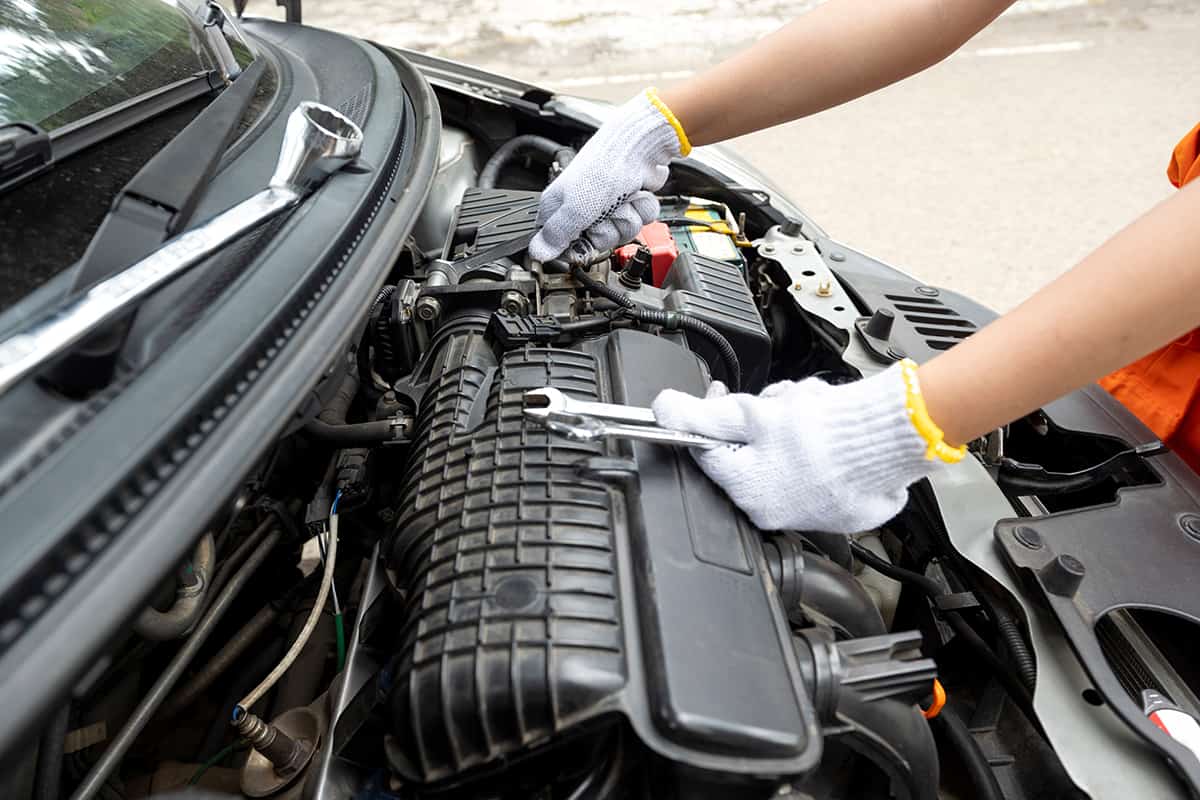
If an engine needs to be replaced or repaired, the price tag could range widely based on the model and severity of the damage. However, on average, engine repairs can cost anywhere from $3,000 to $4,500.
Replacement motors range in price from around $4,000 for a 4-cylinder to $6,000 for a V6 and $7,000 for a V8. The complexity of the engine and the manufacturer of the vehicle may both contribute to a price increase. Installing a high-performance engine in an imported luxury vehicle, for instance, would be more expensive than doing the same for a cheap vehicle.
You can sometimes find a used engine for as little as $500 or $750. The age of the vehicle, the number of miles driven, and the cost of transporting the engine all play a role in the final price. Although not factored into the listed price, shipping fees will be passed on to you by the retailer.
